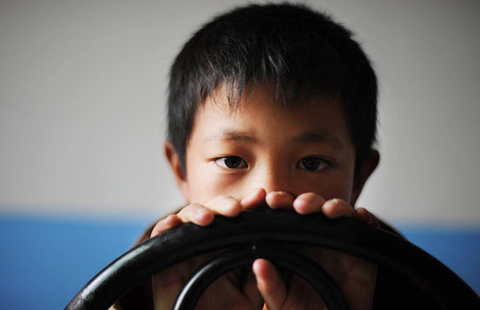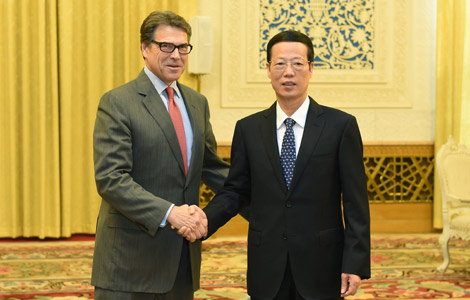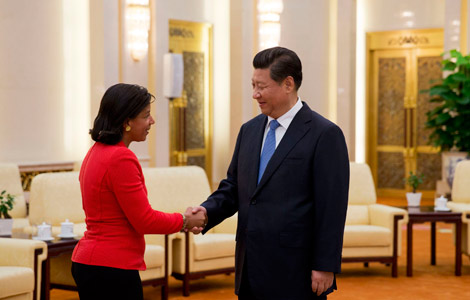New thinking in China's diplomacy
Updated: 2014-09-11 07:29
By Xu Jin and Du Zheyuan(China Daily)
|
||||||||
The policy of nonalignment should be updated as well. History shows that allies are necessary for any rising power in order to ease the security pressure from the alliances of the existing powers. China has participated in many multilateral security mechanisms, such as the East Asia Summit, the East Asia Forum, and the Six-Party Talks, but they are only platforms for discussion and have proved ineffectual when it comes to disputes over core interests such as territory. China needs deeper coordination to gain support in negotiations.
Yet considering the possible difficulties in renovating its nonalignment policy, China should start by making relations with certain neighbors more intimate and bringing these special relations together into a "community of shared destiny". This community is collaborating on security, and its members can support each other when needed.
The long-shaped thinking that "diplomacy should serve economic development" applied well when China was undeveloped, which is no longer the case although it remains the largest developing country of the world. Now it has achieved remarkable economic growth, its diplomacy needs to serve national rejuvenation, and help raise China's global influence and its citizens' global status. The days when China would suffer in its diplomatic work for the sake of economic cooperation should be gone.
However, the old way of thinking might continue to cast an influence on China's diplomacy for some time to come. A good example is the relationship with Japan. Some have overstressed the importance of trade in relations, while others have exaggerated the negative effects upon China if the relationship worsens. Both viewpoints argue for maintaining strong economic cooperation with Japan, despite worsening political relationship.
Yet both groups have downplayed the strategic competition between China and Japan and put economic interests before national interests, even security. Actually, economic intimacy will not automatically improve Sino-Japanese relations, and political and security interests should take precedence over economic interests, so long as the Japanese leadership continues to pursue military expansion.
In some other fields the new thinking is already being applied. On the nuclear issue of the Democratic People's Republic of Korea, for example, China is increasingly expressing its concern as a stakeholder, instead of purely negotiating as a neutral party. China has its own interests and does not need to be shy in defending them.
The authors are researchers with the Institute of World Economics and Politics at the Chinese Academy of Social Sciences.

 Americans remember 9/11 on 13th anniversary of attacks
Americans remember 9/11 on 13th anniversary of attacks
 A peek into the lives of AIDS orphans
A peek into the lives of AIDS orphans
 Flute star tours China in encore
Flute star tours China in encore
 Texas governor is on a mission to strengthen China ties
Texas governor is on a mission to strengthen China ties
 Solemn Ceremony
Solemn Ceremony
 American mark the 13th anniversary of the 9/11 attacks
American mark the 13th anniversary of the 9/11 attacks
 One day of a male kindergarten teacher
One day of a male kindergarten teacher
 Xi welcomes Rice in Beijing
Xi welcomes Rice in Beijing
Most Viewed
Editor's Picks

|

|

|

|

|

|
Today's Top News
Obama: Joint force vs ISIS
Money for visa freeze lifts Oct 1
Chinese firms in US advised to learn rules
McDonald's faces woes in US, abroad
Obama to authorize air strikes in Syria against IS
China capable of hitting growth targets, Li says
Li reassures investors on investigations
Texas governor tours China
US Weekly

|

|








